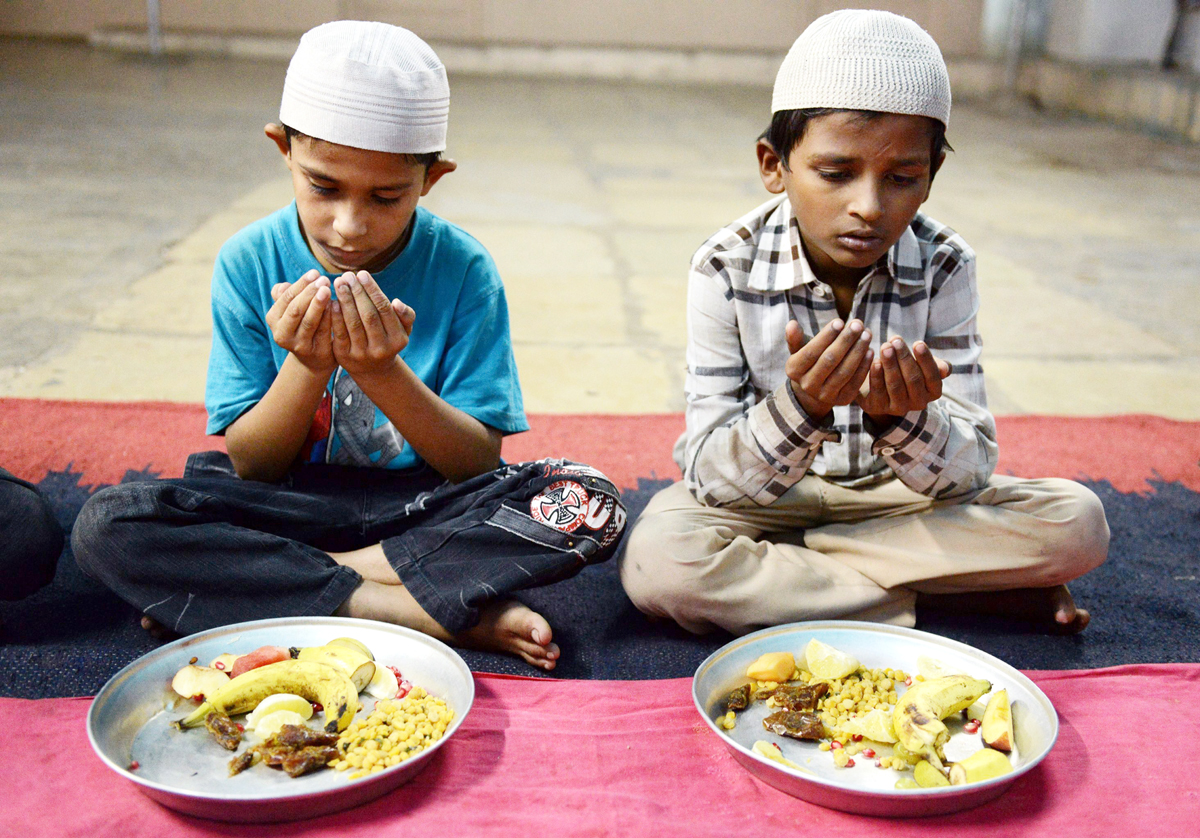Dr Farooq Ahmad Peer
Fasting is the third pillar of Islam which begins from the Holy Month of Ramazan of the Islamic calendar. The month of Ramazan, in which fasting is observed, prevents evil tendencies and purifies the soul of a believer. The Holy Quran says that “The month of Ramzan is that in which the Quran was revealed, guidance to men and clear proofs of guidance and destinations, therefore, whoever of you witness the coming of this month, he shall fast therein.” The fast of Ramzan lasts for one whole month during which a Muslim restricts himself from drinking, eating, evil talking and listening to ill. The fast begins from the daybreak and continues till the sunset. A Muslim observing fast must abstain from all vicious actions, such as abusing, back-biting, anger, jealousy, sexual intercourse. The fasting among the muslims does not mean to remain hungry but to restrain his or her actions from all evils and also to restrain one’s eyes, tongue, and ears and all other senses of the body from lust and passionate activities.
The fasting is obligatory upon every muslim, male and female, who is healthy and mature. It is not important to observe the fast for the weak, the sick, the traveler, the student who is in the pursuit of knowledge, the soldier engaged in Jihad against the challengers of faith. It is forbidden on the days of the two great festivals of Islam, Id-ul-fitr and Id-ul-Azha,(Bukhari 30: 66).It is a means of spiritual discipline and the ultimate goal of fasting is to seek penance and Allah’s pleasure. According to the Holy Prophet Mohammad (SAW), fasting is a shield to protect oneself from all kinds of evils. The spirit of fasting is to achieve salvation and spiritual solace and order one’s life according to commandments of Allah and Prophet (SAW).The 29 or 30 days of the month of Ramzan are imperative for the Muslims, which are confirmed by the Holy Quran and by the Prophet (SAW). A muslim can not abandon the imperative fast of the Holy month of Ramzan without any genuine reason that too also prescribed under the rules of Sharia’h and in case the fasts are missed due to any reason ,it is a obligatory to observe those sooner in future. There are also some fasts which our beloved Prophet (SAW) himself observed and as the followers of the Prophet (SAW),we also observe these to follow the Sunnah and attain atonement but it is to mention that these are not compulsory. Our Prophet (SAW) observed fasts on the 9TH and 10th of Muharram, on the Arafah, 9th of Zil- Hajj, Ayyam Baid, on the 13th, 14th, and 15th of every month. A muslim can also observe voluntary fasts like six fasts of the month of Shawwal, fast on every Monday and Thursday, fast of 15th of Sha’ban, eight fasts during the first ten days of Zil-Hajj. Fast without break and continuous is called Saum Wisal, which is considered undesirable.
The Holy month of Ramzan is a sacred month and it is important for every Muslim to take special care and interest in offering devotions during this month which have innumerable rewards from Allah. In addition to obligatory prayers, one should observe superegatory prayers also. One should recite the Holy Quran constantly in this month and seek Allah’s blessings. One should also offer gifts and helps to the deserving and poor and also take special care of the orphans, widows and try to provide them food at Seheri and Iftar. One should also offer Tarawih prayer with humility and devotion. One should also offer Sadqah in cash and in terms of things to poor people. The month of Ramzan is really a month of blessings and benefits and it is the chief of months. The first part of this month is Allah’s Mercy, the middle part is His Forgiveness, and the last part is Salvation and release from the fire of Hell. This month is a blessing in the sense also that if a person performs an optional act of goodness willingly only to attain Pleasure of Allah, he is entitled to a reward equal to that of an imperative duty performed in the other months, and if a person performs an imperative duty in this month, he is entitled to a reward equal to that of seventy imperative acts performed in other months.( Mish Kat)
Fasting is aimed at cleansing the soul and mind of a man. It increases the power of resistance and enables a person to submit himself before the Will of Allah. It invigorates the conscience of a man and fills it with noble spirit. It also washes away man’s arrogance and makes him humble and teaches sympathy for the hungry. It improves the digestive system of a believer and thus also contributes in improving the health of a believer. Fasting with full consciousness makes the Iman of a believer firm and strong in Allah’s blessings and kindness, in His promises with regard to the rewards of the life hereafter and in His knowledge, Wisdom and Justice. The Spirit of fasting elucidates that it should be observed only for the sake of Allah.


